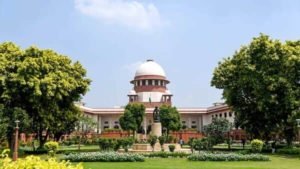The appellant, Sameer Sandhir, is Accused No. 7 in a case involving various offences under the Prevention of Corruption Act, 1988 (PC Act), and Section 120-B of the Indian Penal Code, 1860 (IPC). Between 8th January and 1st May 2013, the Ministry of Home Affairs granted permission to intercept telephone calls of several accused, including Manoj Garg. Two CDs, containing call records of 189 and 101 calls, were seized between 4th May and 10th May 2013. These CDs were sent to the Central Forensic Science Laboratory (CFSL) for analysis on 27th May 2013.
Sanction for prosecution was granted on 2nd July 2013, and the CBI filed a chargesheet on the same day. A supplementary chargesheet was filed on 30th October 2013, along with the CFSL report, as the CDs were not initially filed.
CD Production Dispute: On 16th September 2014, when the evidence of PW-3 (a prosecution witness) was recorded, the CDs were not on record. The CBI then applied to produce the CDs. The Special Judge allowed this, which was challenged by the appellant, leading to a quashing petition in the Delhi High Court.
High Court’s Decision: On 12th May 2015, the Delhi High Court allowed the CBI’s application, setting aside a prior order and directing the Special Court to permit the CBI to bring on record the CDs. Subsequent applications by CBI and challenges by the appellant before the High Court were dismissed, including a quashing petition on 26th April 2017.
Law Involved
- Prevention of Corruption Act, 1988 (PC Act): Sections 7, 8, and 10, relating to corruption offences.
- Indian Penal Code, 1860 (IPC): Section 120-B, for criminal conspiracy.
- Code of Criminal Procedure, 1973 (CrPC):
Section 173(5) & 173(8): Governs the police report after investigation and further investigation. The CBI had filed an application for production of CDs by invoking Section 173(5) of the CrPC. The supplementary chargesheet was filed under Section 173(8) of the CrPC.
Section 207: Deals with furnishing to the accused of copy of report and other documents.
Indian Evidence Act, 1872: Section 65B, pertaining to the admissibility of electronic records and requiring a certificate.
Reasoning :
- CDs as Part of Investigation: The Supreme Court affirmed that the CDs were seized during the investigation and were subjected to forensic analysis by the CFSL. The supplementary chargesheet explicitly referred to the seizure of CDs, the voice samples, and the CFSL report.
- No Prejudice to Accused: The Court noted that even if there was a mistake in not producing the relevant documents at the time of the initial chargesheet, the investigating officer is always open to producing them with court permission. The production of additional documents after the chargesheet is submitted does not automatically imply prejudice to the accused if their rights are protected during trial.
- Reliance on Precedents: The Court heavily relied on previous judgments to support its decision:
R.S. Pai: This case states that it is not prohibited for an investigating officer to produce additional documents after filing a chargesheet, and such an omission does not mean remaining documents cannot be produced subsequently. The Court stated that the decision in R.S. Pai is “no longer good law” on some aspects, but confirmed its principle that the prosecution is generally allowed to supply all documents upon which reliance may be placed, even if done at a later stage, provided it does not cause prejudice or injustice.
Mariam Fasihuddin & Anr. v. State by Adugodi Police Station & Anr. The Court cited this case regarding “further investigation” and how a supplementary report relies on new material unearthed during investigation.
Arjun Panditrao Khotkar: This judgment allows for the production of documents to fill lacunae before the commencement of trial and provides the general procedure for producing documents.
Siddhartha Vashisht & V K Sasikala: These cases confirm the principle of allowing accused to get copies of documents relied upon, clarifying that if documents are inadvertently not produced with the chargesheet, it doesn’t prevent their later production.
Holding: The High Court’s decision to allow the production of CDs was upheld. The issue of the authenticity of the CDs and the Section 65B certificate remains open and can be challenged by the appellant during the trial by cross-examining prosecution witnesses.
Sameer Sandhir V .Central Bureau Of Investigation
Supreme Court: 2025 INSC 776: (DoJ 23-05-2025)






